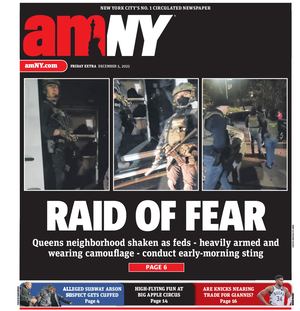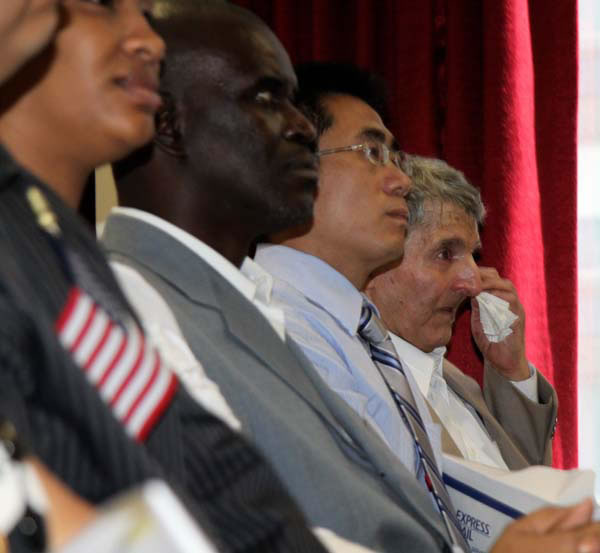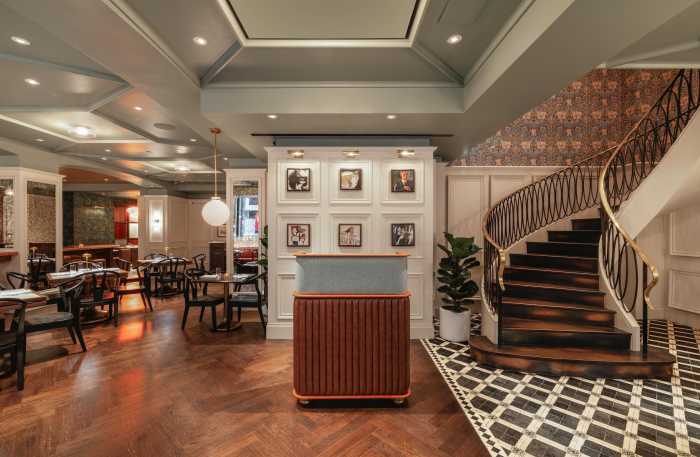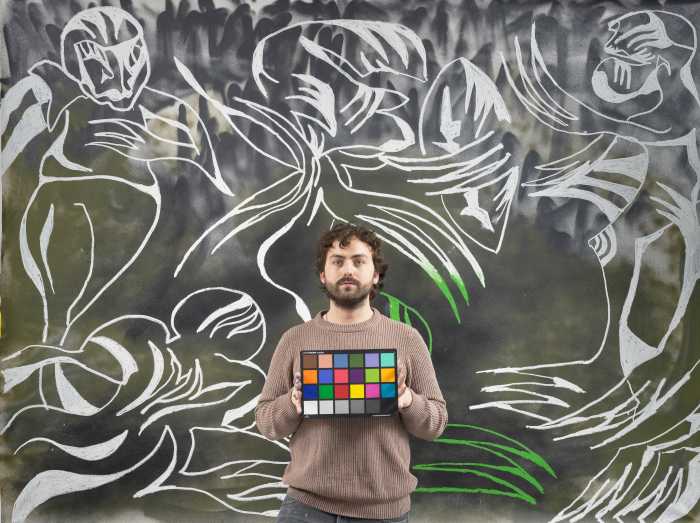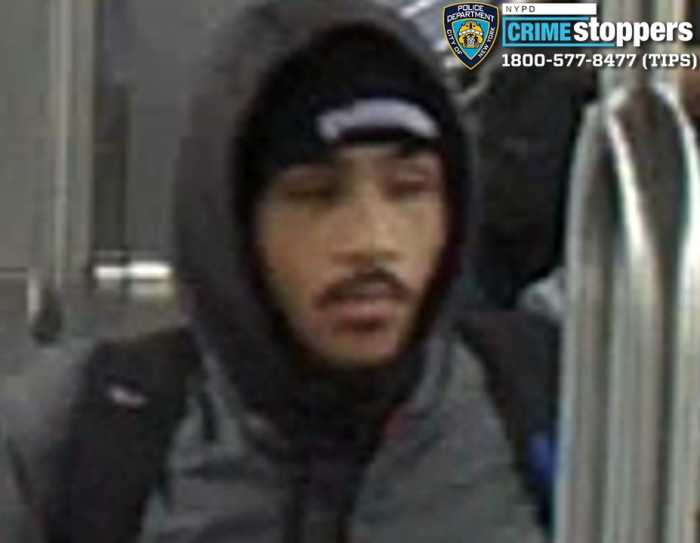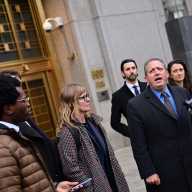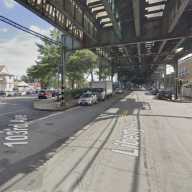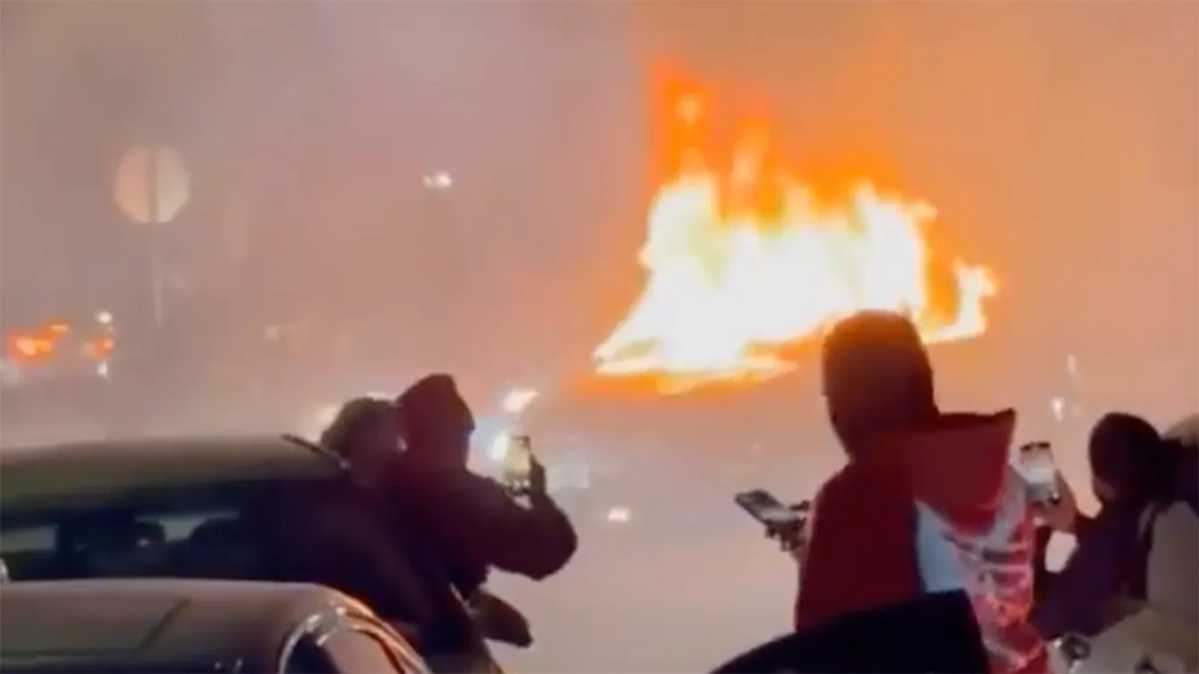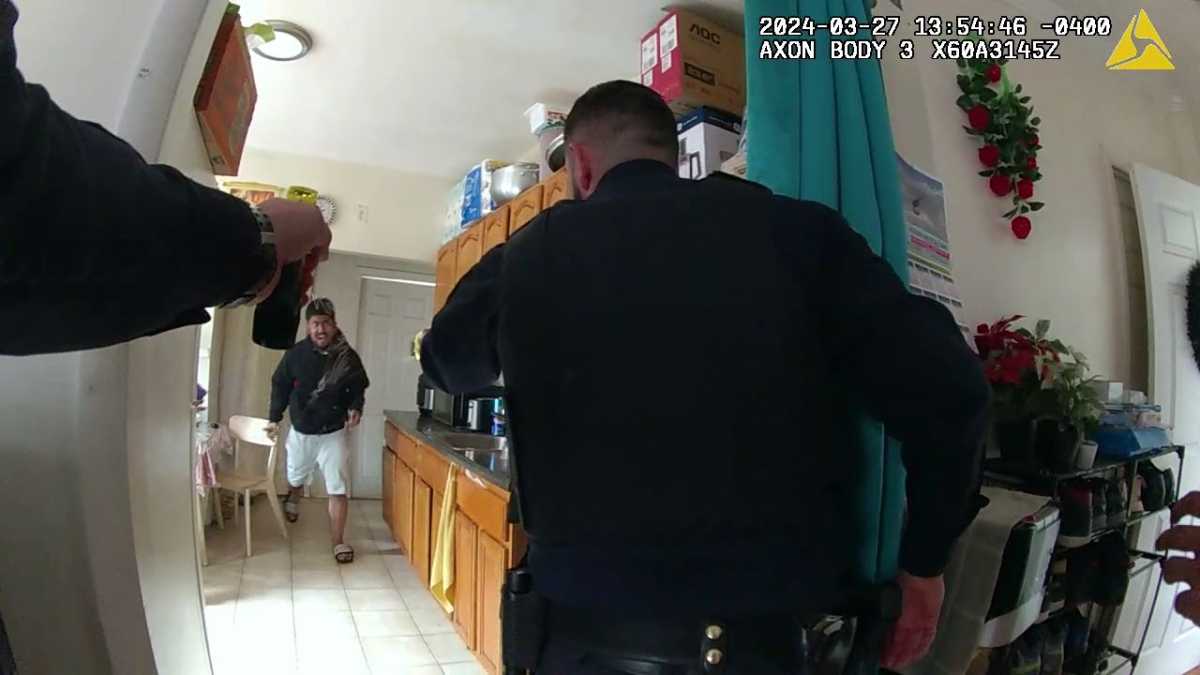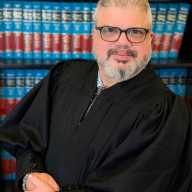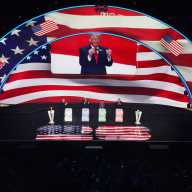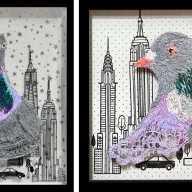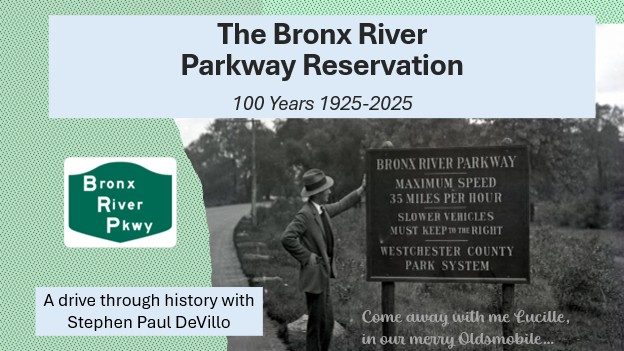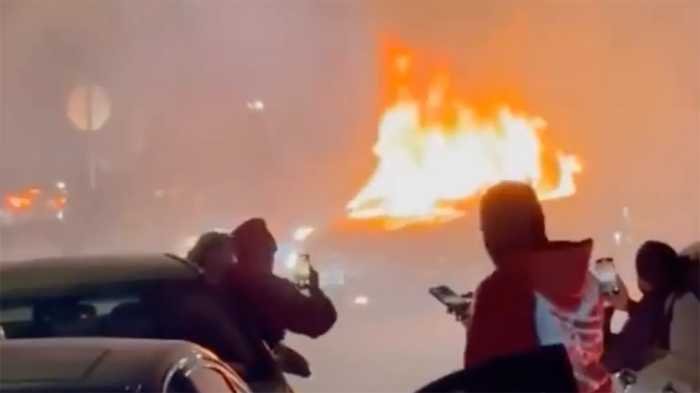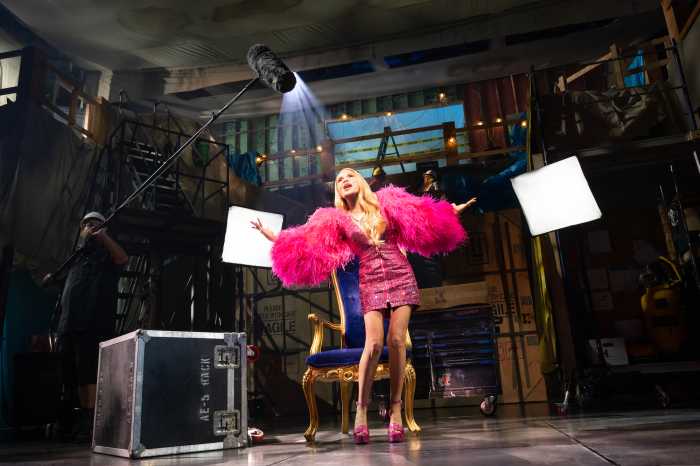Friday morning, he was among a group of 173 people from 50 countries who were naturalized in a group ceremony Downtown at 26 Federal Plaza.
At the event’s start, each was given a small American flag to hold. "The Star-Spangled Banner" was played, with the words projected on a screen at the front of the room, so that all could sing along — though not that many did, since it’s no secret the words can be a bit tricky. (Hey, even Christina Aguilera screwed it up once.)
"I remember the ‘Oh say…,’" Ray said, speaking later, "some part of that. It was right on the screen, so you can’t go wrong."
After the national anthem, people applauded. Ray and the others were informed that they could now "vote and serve on a jury of their peers."
People were then asked to stand as the names of their countries were read in alphabetical order. Eliciting an audible "Whoah!" from the audience was the contingent from the Dominican Republic, which rose to their feet about 50 strong.
They were told to renounce loyalty to any "prince, potentate, state or sovereignty" that they had before. They were told it’s their responsibility to support and defend the Constitution, and to bear arms when required by the U.S.
A message from President Obama appeared on the screen.
"…You traveled a long path to get here," Obama told them. "…I’m proud to welcome you as a new citizen of this country."
There was another song, a bit hokey, with the refrain, "And I’m proud to be an American, where at least I know I’m free." (At least?) Everyone swung their flags to the beat.
Then, hands over hearts, they all said the Pledge of Allegiance.
Finally, the certificates of naturalization were handed out. Fittingly somehow, given his half-century citizenship quest, Ray was one of the very last to get his.
Afterward, he admitted he did tear up a bit at one point. He said, in particular, he was touched when photos of immigrants from bygone eras were shown on the screen.
Now, he noted, he has to change the name on every one of his documents from Ray Alvarez to Asghar Ghahraman.
Asked if he still wanted to be called Ray, or Asghar, he said, "In the store, they can call me Ray." However, he said, it doesn’t really matter anymore, noting, "They can call me anything they want — I am American now.
"I’m American. No more Turkish. No more Puerto Rican – I was Puerto Rican for 50 years, I had to learn Spanish."
(Although Ray is from Iran, he grew up speaking Turkish. Because of the Iran hostage crisis and its negative associations, he always told everyone here he was Turkish.)
Ray got down to 26 Federal Plaza at 7 a.m. — an hour and a half early. There was no way he would be late for this day, he said.
He didn’t have to rise early, since he was already awake, as usual, at the end of his overnight shift, which he has been pulling for decades.
Asked if he was nervous beforehand, Ray said, "Not nervous. I wasn’t sure I would get this," he said, holding the certificate, "because there’s so much paperwork — just one word can change the whole thing.
"My situation was very bad: I didn’t have any documents and I had to live a phony name, phony documents.
"But I believe in America. I believe in justice," he said. "People around the world, everyone wants to come here. What a feeling! Looks like I’m born again."
Asked to translate his feelings into Farsi, Ray said, "Nam pustan noni conjam," which literally means, "I can’t fit in my skin" — as in, "I’m so happy, I can’t contain myself, I’m jumping out of my skin."
Witnessing Ray’s historic moment along with a reporter and photographer from The Villager, were two devoted "Ray fans," Constanza, from Argentina, and Kathy D., from the East Village.
Ray was wearing a spiffy fedora —instead of his usual Boar’s Head baseball cap — which Constanza gave him for the occasion. The rest of his naturalization ensemble included a bright floral print tie and a tan jacket, which the "computer guy upstairs" gave him. He topped it all off with a pair of shades, courtesy of "Winston," he said, whose cigarettes he used to sell in his store.
Now that he’s a citizen, the next step is to get his passport, since he’d like to do a bit of traveling. All these years, he never dared leave the country for fear of not being allowed to re-enter. On his list of places to visit are Turkey and Syria. No way can he return to Iran, since he feels he’s still "wanted" there for deserting while in the navy. (Usually, when mentioning this, he slowly draws a finger across his throat.)
Along with his entourage of groupies and media, Ray caught a cab back to the East Village. The driver was an immigrant, too, from Haiti, naturalized 35 years ago.
Asked if he’d have a drink to celebrate, the now-teetotaling merchant said, "I always drank beer. … I’d get drunk on beer. No more, no more. I can drink orange juice."
Arriving at his hole-in-the-wall store, he strode in holding his American flag aloft.
"Congratulations!" a regular at the counter said, shaking his hand.
"You look like mafia," deadpanned Maria — who has worked behind the counter for 25 years — on Ray’s fedora and getup.
Actually, Ray never got his tie on for the ceremony, having forgotten how to knot one.
"I didn’t know how to do it," he said. "I used to when I was in the navy — every day."
With a little effort, once back at the store, Ray did succeed in getting his tie on.
A Polish immigrant, Maria became a U.S. citizen 13 years ago.
Asked if she’ll start calling Ray his given name, Asghar, now, she said, "No, the second name is too difficult. It’s too many years — too late."
Ray planned to make a color copy of his naturalization certificate and proudly post it inside his store.
Finally, it was time to relax and get some shuteye after all the excitement — all the jumping out of his skin with joy. His skin needed a rest.
Ray took his customary modest breakfast of a cup of milk and a buttered roll and headed home to his bed.
"My beauty sleep," he quipped.
What a morning it had been.
Nam pustan noni conjam.
